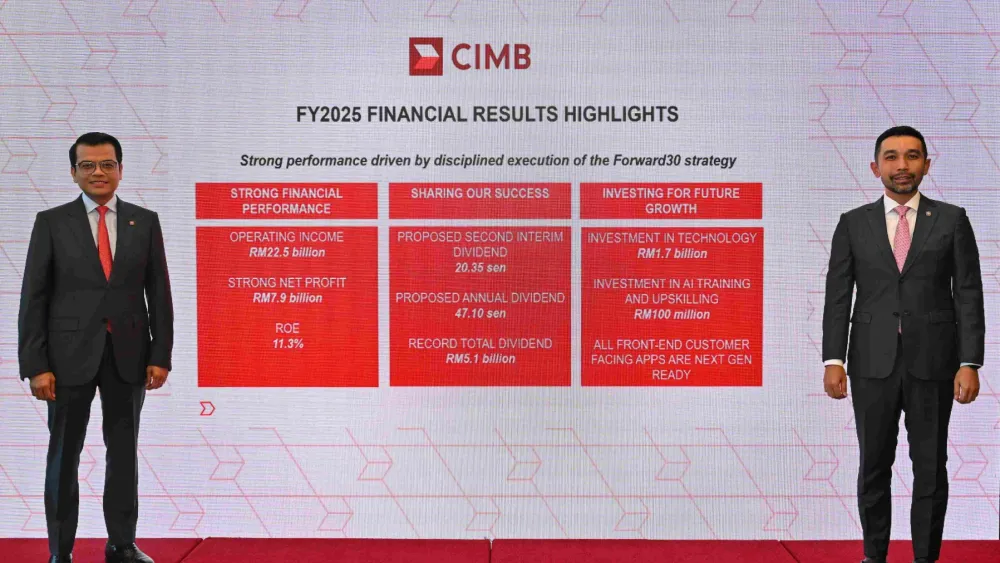
China’s new foreign-friendly financial market brimming with opportunities, but limits still abound
If authorities remove the “execution-only” restriction in WM Connect, money flows in the channel could grow ten times bigger than the $22.5b quota, says EY’s Christine Lin.
China opening up its trillion-dollar financial market to foreign firms is cause for much celebration, but that's not to say that everything is smooth sailing: more foreign firms may be taking a wait-and-see approach following China’s ongoing regulator crackdown.
In 2020, China moved to open its financial market overseas, easing restrictions in foreign ownership and finally allowing wholly foreign-owned financial institutions to the country. Foreign firms have much cause for celebration: the revised regulations open up a 48 trillion-dollar market, as noted by an American think tank Peterson Institute for International Economics (PIIE).
Already, non-Chinese firms are making waves, with the most notable of them being the asset manager BlackRock China, whose equity fund raised $1b in its maiden mutual fund just days after it launched in August 2021.
China has also set up a number of new schemes that will definitely entice foreign financial firms to enter the market, chief of them being the Wealth Management Connect (WMC), which offers opportunities for financial institutions situated in Hong Kong to offer investment products to millions of investors across the Greater Bay Area (GBA)
That’s not to say that everything is smooth sailing: the recent regulatory crackdown in China–which has affected even the country’s biggest financial players, a chief example being Ant Group’s suspended 2020 IPO—may have driven some foreign firms to take a wait-and-see approach before diving into the Red Dragon’s financial market no matter how enticing it is, noted Christine Lin, Financial Services Assurance Leader and Wealth & Asset Management Sector Leader for EY Hong Kong.
In regards to WMC, restrictions in the scope of activities that can be done under the channel is deterring growth–restrictions which, if removed, could drive money flows within the channel to be much bigger than the US$22.5b (RMB150b) quota set by authorities, Lin told Asian Banking & Finance.
“[One] of the restrictions is that the banks in Hong Kong, for example for the Southbound, they can do “execution-only.” This means that the bank cannot make recommendations to the fund managers on different funds or investments,” Lin explained.
And how big could it grow? “When you look at the population of Hong Kong and the GBA, we're talking about 7.8 million and 71 million in terms of population (respectively). If you just talk about that, 10 times, definitely,” Lin said, and also noted the size of the GBA economy. “So if you have to ask me to put a number on it: 10 times.”
Asian Banking & Finance spoke with Lin to find out more about what’s been happening in China since foreign investment funds entered, what the wealth management connect could mean for foreign banks, and what’s in store for China’s push to integrate itself in global financial markets.
Could you give us an overview of what's been happening in China since foreign investment funds first entered?
From what we observed in the market, a lot of the global banks, private banks, or the global asset managers, actually have been at different paces of their own journey in their goal to set up business in China. Some of the multinational companies are applying for the licenses, and some have actually already set-up joint ventures like in the old days, when the multinational entity was not able to take a controlling stake, but now they allow fund managers to hold 100% of the WFOE. So these are some of the set ups that international firms are doing in Mainland China at the moment.
I think BlackRock has been very high profile and very successful for their first fund launch in Mainland China. In five days, US$1 billion, [it] was no problem for them. With that you can see the purchasing power of the middle class in Mainland China presents such a huge business opportunity for the global bands and global asset managers.
But some of the global banks or global asset managers, they take a wait-and-see attitude.At the beginning of 2021, or even back in 2020, a lot of them were very bullish on the development of their China footprint. How they move forward will depend on how comfortable they are with their China plans. So it's quite a diversified market, I would say.
There's currently a regulatory crackdown happening in China that is also affecting the financial industry. Have you observed whether the activities of foreign investment funds and even foreign finance firms are being affected by this?
At the moment, we understand from some of the fund managers that they are staying away from China equity exposures for a while. But I do believe that from a longer-term perspective, for quite a lot of them, China's still one of the focus and a part of their growth strategy.
But at the moment, because of what's happening in mainland China with new regulations for a while in the internet gaming, education [sectors], they recently talked about the casino [industry]--I think all these are making them want to stay away for a while. But how long are they going to stay away? I think this all depends on how the regulatory (environment) develops as well? I do think from a longer term perspective, China is still one of the core focus for the fund managers.
Let’s move on to the topic of Wealth Management Connect. What does the launch of this channel mean for the banking industry in the Guangdong, Hong Kong, GBA region? And what opportunities does it give to foreign banks and financial institutions?
Fee income definitely. I think you may have already seen some of the media talking about the US$500m annual fee income that banks can benefit from the WealthConnect. From the bank's perspective, in order to tap into these opportunities, they will need to have the right product and also the right resources. That's why in the early days, you see that multiple banks have already announced their recruitment plans; say, by the end of 2025, how many people they want to recruit from the private bank perspective. From the front to the back office, they are recruiting.
The reason why I mentioned about the product perspective is because when you look at the state of the WealthConnect at the moment, unfortunately we’re [in the midst] of the COVID situation right now, so Southbound, Hong Kong does allow remote account openings, but Northbound, Hong Kong people still need to physically travel to Mainland China. Because of this, in the beginning, there will be more inflows from the southbound side because of the remote account opening.
From the product perspective, one of the restrictions is that the banks in Hong Kong, for example for the Southbound, they can do execution only. This means that the bank cannot make recommendations to the fund managers on different funds or investments, etcetera. For the product features, the design, that’s quite important, so they just be able to attract the Southbound investors, and so it's easier for them to buy and understand the product through e-distribution. FinTech design will be one of the key features of the investment for the private banks.
In order to be successful and to attract the Southbound investors, it's very important to have the right product on the shelf and make it easier for the Mainland investors. So if we talk about e-distribution in the Mainland market, when you look at the the largest funds at the moment, the one with the largest market share... is Tianhong Asset Management, which is definitely [leveraging] via the Ant Financial e-distribution platform to distribute their products.
When you look at all these local asset managers, China AMC, Harvest, etc, they all have their own-developed e-platform as well. So that's why e-platforms are quite important for asset managers and for banks to tap into the retail space. And at the moment, WealthConnect is still retail-focused, because they do not allow institutional investors to approach us for the WealthConnect platform yet. So that's why e-distribution is very important at the moment.
(interview continued below)

Christine Lin, Financial Services Assurance Leader and Wealth & Asset Management Sector Leader for EY Hong Kong (Source: EY).
What issues, if any, are there in wealth management connect?
One thing the industry asks about a lot is regarding it being execution only.
They cannot recommend which fund or which product the investor can buy. For example, if I'm a Southbound investor in the Mainland, looking at the products offered by my bank, and I am looking to invest in Hong Kong when I'm from the mainland, I will of course look into the bank's website, where there's 50 to 100 funds listed. You can already tell how difficult it is for a normal investor just to pick out a fund from the long fund list there.
At the moment, you can sort of do reverse solicitation, that means if the investor asks for the features of a particular fund, then the RM in Hong Kong can explain. But they still cannot make recommendations. So this is an issue the industry will need to think about how to tackle in order to make wealth connect work for their bank.
The rules for WealthConnect at the moment, they use the word execution-only and the HKMA was very clear in their FAQs that you cannont make recommendations on the investments. If the regulator allows the banks to be able to sell and make investment recommendations, WealthConnect will work much more easily for the Hong Kong and the China banks. This is why the industry is asking that they be able to sell and make recommendations on investments.
So you don't think it's going to affect them (question was about whether this will discourage foreign firms from offering investments in China or affect them, them being foreign firms, not Chinese banks)?
I think in the short term? Yes. But from a longer term perspective, China is still being seen as one of the growth engines by many of these global companies. So I do think that in their long term business development plans, China still has a place in their development. In the short term it could be affected, [due to the] geopolitical issues, different regulations, we've also seen all these regulations come out very quickly, so there might be an impact.
It's also been observed that the Chinese regulators seem keener to keep capital within the country and have made it harder for foreign listings. What is your view on this?
Whether they keep funding within the mainland or make it difficult to invest into mainland China...I am looking at this as the mainland government making the call. This is a kind of policy that, given the geopolitical environment at the moment, would probably be a temporary policy. I don't think they're trying to make it so difficult, or trying to cap the money within the mainland.
How big do you think it could grow?
Definitely much larger than RMB150b. When you look at the population of Hong Kong and the GBA, we're talking about 7.8 million and 71 million in terms of population (respectively). If you just talk about that, 10 times, definitely and the economy of the GBA is huge as well. So if you have to ask me to put a number on it, 10 times.
Do you know if the Hong Kong industry is lobbying to have wealth management connect open to institutional investors?
At the moment, the banks are lobbying for a larger quota, lobbying for their product list to be larger because they want to include more products in the wealth management connect. Whether WealthConnect can be opened to institutional investors, for the longer term, yes, I think the banks will lobby for that as well. But at the moment, we haven’t heard that the banks are lobbying the regulator for institutional investors yet.
Earlier you said that there are many foreign firms that are taking a wait and see approach. So what changes in regulation has made foreign firms rethink their strategies?
I think for some of the firms, when they look at their whole China strategy, why they put it on a wait and see is because they can see their peers setting up, and can see how well their peers are doing, whether they are making profit or not, etcetera.
There are a few things not purely from the regulatory perspective that push them to take a wait and see approach. Number one, actually, when you look at all the global banks and asset managers, talent is really an issue for them. I mean, onshore Mainland China talent. The lack of a talent pool in mainland China makes hiring very difficult for global players, to get the onshore people they need to help fuel their infrastructure. Chinese high net worth or ultra high net worth investors follow their relationship managers a lot; and for many firms, it is very expensive and very difficult to find and to retain a good relationship manager.
I think the second one is also when you’re comparing those global players, their global minimum numbers sometimes are actually higher than the local China regulatory requirements and also the China market practice. From the global banks’ perspective, they will need to adjust this concept, if they want to go ahead with their China operations or China setups.
Number three is from the value proposition perspective. The Chinese high net worth and ultra high net worth investors may not see immediate value in using a foreign player, unless they want to get exposure to overseas products or services. The Chinese banks will also need to offer well-designed products, which will be able to provide profitability and protection fit for the Chinese investors habits and preferences as well, and be able to meet the needs of the current FinTech development in mainland China.
The last point I want to make is that the enhanced data security law in mainland China, which came in force on Sept 1 2021, that actually contains provisions covering the usage, production and also the protection of data in mainland China. This is also another issue that the global banks and the global asset managers will need to talk about in terms of what data can be or cannot be transmitted outside of the mainland. How this will impact their China operations, this is something the global banks and global asset managers will need to figure out.



















 Advertise
Advertise











